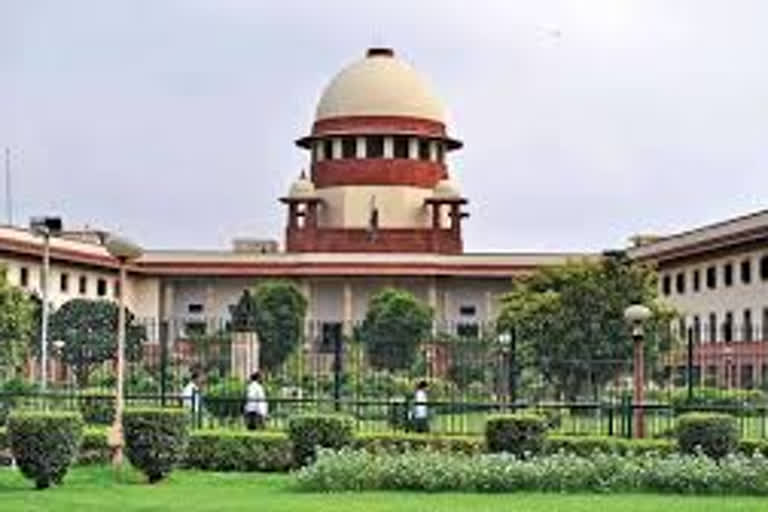New Delhi: Tata Sons Pvt Ltd has told the Supreme Court that it is not a 'two-group company' and there is no 'quasi-partnership' between it and Cyrus Investments Pvt Ltd.
The Tata Sons Pvt Ltd (TSPL) said this in an affidavit filed in the apex court while responding to the cross-appeal filed by Cyrus Investments Pvt Ltd seeking removal of alleged anomalies in NCLAT order for getting representation on the TSPL's board in proportion to the stake held by his family.
All the foregoing facts (mentioned in the affidavit) are clear signs of the fact that Tata Sons was never intended to be and is not a two-group company' and there is certainly no quasi-partnership between the appellants (Cyrus Investments and another firm) and the so called Tata Group', said the affidavit.
The apex court had on January 10 granted relief to Tata group by staying the National Company Law Appellate Tribunal (NCLAT) order of December 18 last year, by which Cyrus Mistry was restored as the executive chairman of the salt-to-software conglomerate.
A bench headed by Chief Justice S A Bobde had on May 29 issued notice to TSPL and others on a cross-appeal filed by Cyrus Investments Pvt Ltd.
Cyrus Mistry had also filed an affidavit to the apex court saying the Tata Group had an adjusted net loss of Rs 13,000 crore in 2019 -- the worst losses in three decades.
In his reply to the Tatas' petition challenging his reinstatement by the NCLAT last December, Mistry also demands that group chairman emeritus Ratan Tata should reimburse all the expenses to Tata Sons since his departure in December 2012 in keeping with best global governance standards.
"The Tatas had sought to exclude the dividends from TCS to arrive at operating profit in a bid to discredit my performance. Applying the same yardstick, the adjusted profit after tax (excluding profit from TCS) stood at a negative Rs 13,000 crore in 2019 for the Tata Group, which is the worst loss in three decades, Mistry has said in his reply in the top court.
Mistry, the ousted chairman of Tata Sons, is seeking representation in the company in proportion to the 18.37 per cent stake held by his family, the cross-appeal has said.
In its affidavit filed in the top court, Tata Sons has alleged that the thrust of that Cyrus Investments Pvt Ltd's focus has now shifted to propagating the quasi-partnership theory to secure the relief of proportionate representation'.
This is ironical since the issue of quasi-partnership was never pleaded before the NCLT, it said, adding, It is not until the matter reached the NCLAT, which is when for the first time the appellants conjured this plea of quasi-partnership in their company appeal.
Even though the NCLAT did not hold Tata Sons to be a quasi-partnership, at least not in so many words, it nevertheless proceeded to grant certain reliefs to the appellants on the basis of specious and misconceived reasoning that Tata Sons was a two-group company, it said.
